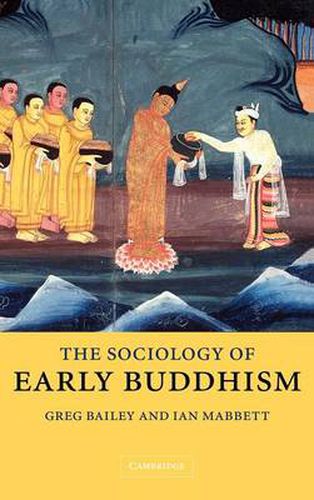Readings Newsletter
Become a Readings Member to make your shopping experience even easier.
Sign in or sign up for free!
You’re not far away from qualifying for FREE standard shipping within Australia
You’ve qualified for FREE standard shipping within Australia
The cart is loading…






Early Buddhism flourished because it was able to take up the challenge represented by buoyant economic conditions and the need for cultural uniformity in the newly emergent states in north-eastern India from the fifth century BCE onwards. This book begins with the apparent inconsistency of Buddhism, a renunciant movement, surviving within a strong urban environment, and draws out the implications of this. In spite of the Buddhist ascetic imperative, the Buddha and other celebrated monks moved easily through various levels of society and fitted into the urban landscape they inhabited. The Sociology of Early Buddhism tells how and why the early monks were able to exploit the social and political conditions of mid-first millennium north-eastern India in such a way as to ensure the growth of Buddhism into a major world religion. Its readership lies both within Buddhist studies and more widely among historians, sociologists and anthropologists of religion.
$9.00 standard shipping within Australia
FREE standard shipping within Australia for orders over $100.00
Express & International shipping calculated at checkout
Early Buddhism flourished because it was able to take up the challenge represented by buoyant economic conditions and the need for cultural uniformity in the newly emergent states in north-eastern India from the fifth century BCE onwards. This book begins with the apparent inconsistency of Buddhism, a renunciant movement, surviving within a strong urban environment, and draws out the implications of this. In spite of the Buddhist ascetic imperative, the Buddha and other celebrated monks moved easily through various levels of society and fitted into the urban landscape they inhabited. The Sociology of Early Buddhism tells how and why the early monks were able to exploit the social and political conditions of mid-first millennium north-eastern India in such a way as to ensure the growth of Buddhism into a major world religion. Its readership lies both within Buddhist studies and more widely among historians, sociologists and anthropologists of religion.